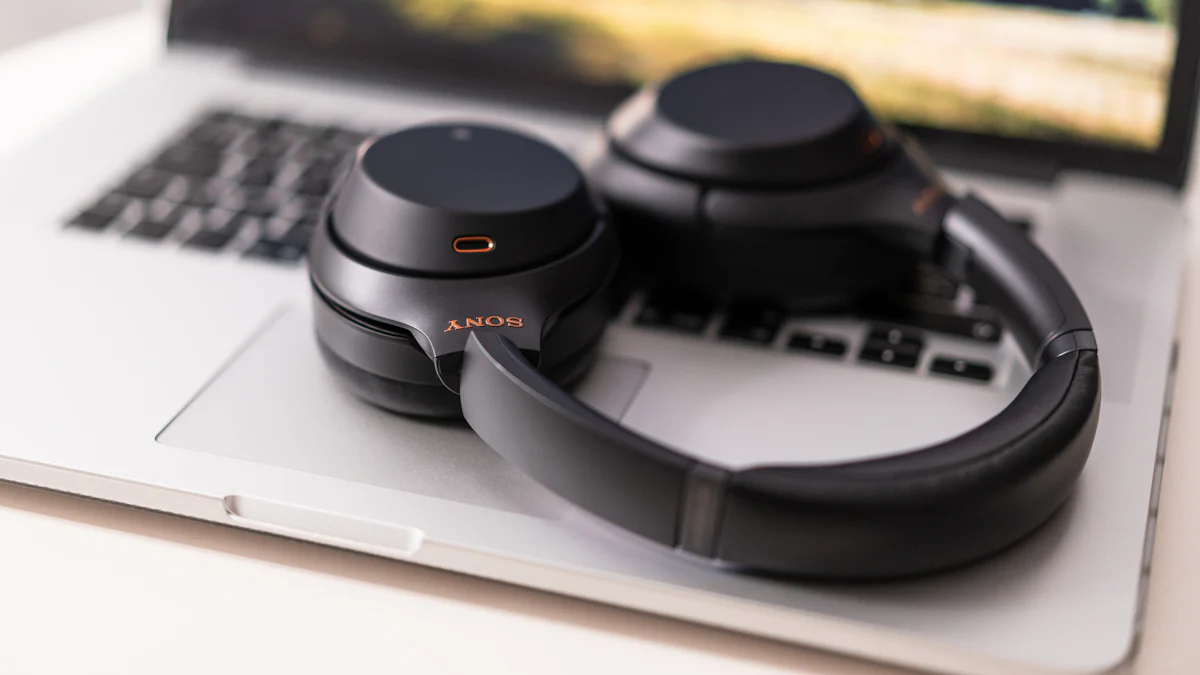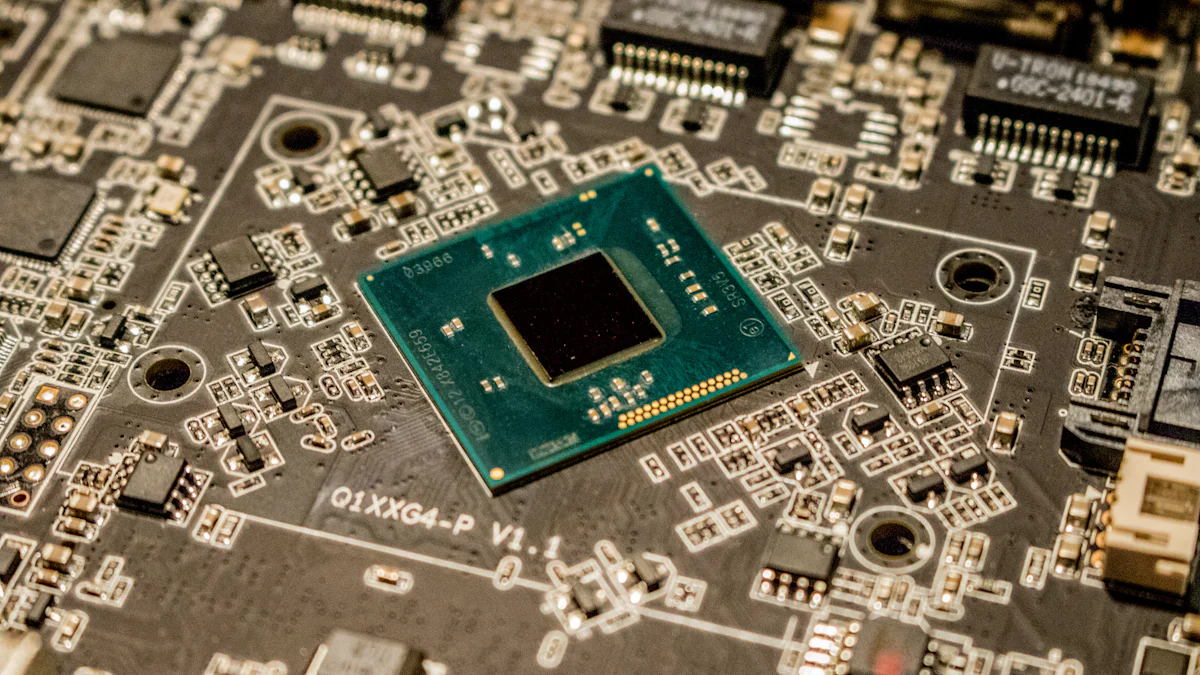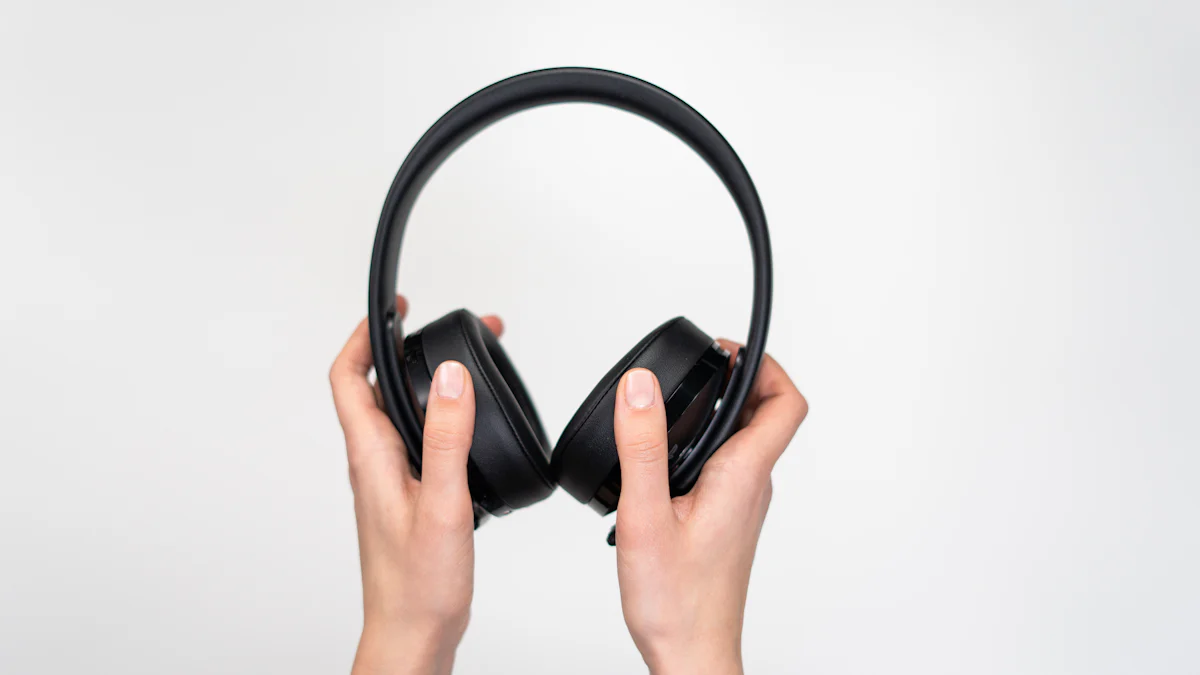The Magic Behind Noise Cancelling Headsets

ANC (Active Noise Cancellation) technology has revolutionized how individuals experience sound. The ability to block out unwanted noise creates a serene environment, whether in bustling London or a noisy office. The significance of ANC in modern life cannot be overstated. Studies show that reducing ambient noise can lead to a remarkable 46% increase in task completion rates and improved mental well-being.
This blog will explore the fascinating history of noise cancellation, delve into the technology behind it, and discuss its benefits and future prospects. Discover the magic behind your favorite headset and how it enhances daily life.
History of Noise Cancellation
Origins and Early Development
Initial Use for Pilots
The concept of noise-cancelling technology was invented for airplane pilots. Dr. Lawrence Jerome Fogel designed one of the first noise-cancelling headphone systems. The initial goal aimed to reduce the loud engine sounds that airplane pilots experienced during long flights. This innovation allowed pilots to communicate more effectively and reduced fatigue caused by constant exposure to high decibel levels.
Evolution Over Time
Noise cancellation technology evolved significantly over time. Early systems focused on aviation, but advancements soon made this technology accessible to consumers. Companies like BOSE introduced new prototypes with built-in microphones in each earmuff, enhancing the effectiveness of noise cancellation.
Milestones in Noise Cancellation
Introduction of ANC in 1978
The year 1978 marked a significant milestone with the introduction of Active Noise Cancellation (ANC) technology. Researchers developed methods to create anti-noise frequencies that could effectively block unwanted sounds. This breakthrough laid the foundation for modern noise-cancelling headsets.
Development of Consumer Headsets
The development of consumer headsets revolutionized personal audio experiences. Initially used by airplane pilots, these headsets became popular among everyday users seeking relief from ambient noise. Modern ANC headphones now feature advanced algorithms and adaptive sound profiles, showcasing continuous innovation in this field.
Technology Behind Noise Cancellation

Understanding Sound Waves
Basics of Sound and Noise
Sound travels in waves, which consist of compressions and rarefactions. These waves have properties such as frequency, amplitude, and wavelength. Frequency determines the pitch, while amplitude affects the volume. Noise refers to unwanted or disruptive sound that interferes with what individuals want to hear.
How Noise Cancellation Works
Noise cancellation work involves generating an "anti-noise" signal that cancels out ambient noise. This process uses microphones to detect external sounds and then creates a sound wave with the opposite phase. The two waves combine through destructive interference, effectively reducing or eliminating the unwanted noise.
Active Noise Cancellation
Role of Microphones and Speakers
In active noise cancellation technology, built-in microphones pick up ambient sounds. These microphones send this information to a digital signal processor (DSP) that analyzes the noise patterns. The DSP generates an anti-noise signal, which speakers emit to cancel out the detected noise.
Advanced Noise Cancellation Algorithms
Modern ANC technology employs advanced algorithms to enhance noise reduction. These algorithms adapt in real-time, adjusting the anti-noise signal based on changes in ambient sound levels. This dynamic approach ensures effective cancellation across various environments, from a bustling city street to a quiet office.
Advanced Noise Cancellation
Adaptive Noise Isolation
Adaptive noise cancelling devices take advanced noise cancellation technology further by offering adaptive isolation features. These devices continuously monitor environmental sounds and adjust their settings for optimal performance. This adaptability allows users to experience consistent noise reduction regardless of location.
Customizable Sound Profiles
Modern headsets offer customizable sound profiles, allowing users to tailor their audio experience based on personal preferences or specific needs. Users can adjust settings for different environments, ensuring optimal listening experiences whether at home, work, or traveling through a noisy city.
Benefits and Applications

Health and Productivity
Reducing Stress and Fatigue
Noise-cancelling devices play a crucial role in enhancing health by reducing stress and fatigue. Constant exposure to ambient noise can lead to increased stress levels, which negatively impacts overall well-being. By using headphones with advanced cancellation technology, individuals can create a quieter environment. This reduction in unwanted sound helps lower stress hormones, promoting relaxation and mental clarity.
Enhancing Task Performance
Advanced noise-cancelling devices significantly improve task performance. Studies show that reducing ambient noise leads to a remarkable increase in task completion rates. In shared workspaces, these devices help filter out distractions, allowing for better concentration on tasks at hand. Enhanced focus translates into higher productivity levels, making these headsets invaluable tools for professionals.
Everyday Use
In Public Spaces
In public spaces, headphones with noise-cancelling features offer immense benefits. Commuters often face high levels of ambient noise, which can be overwhelming. Using a noise-cancelling headset allows users to enjoy their favorite music or podcasts without interference from surrounding sounds. This feature enhances the audio experience while providing much-needed audio privacy, shielding personal conversations from prying ears.
At Home and Work
At home and work, noise-cancelling headsets prove indispensable for maintaining a peaceful environment. Whether working remotely or relaxing after a long day, these devices help block out disruptive noises such as traffic or household activities. The ability to create a quiet space contributes to improved mental well-being and productivity. Customizable sound profiles further enhance the user experience by tailoring settings to specific needs.
Future of Noise Cancellation
Next-Gen Noise Cancelling Technology
Integration with Smart Devices
Next-Gen Noise Cancelling Devices will integrate seamlessly with smart devices. This integration will allow users to control noise-canceling headphones through voice commands and mobile apps. Companies like Bose and Cleer Audio are leading this innovation. The goal is to provide a more intuitive user experience.
Enhanced Audio Privacy
Future advancements in Next-Gen Noise Cancelling technology will focus on enhanced audio Privacy. Noise-Canceling Headphones will offer better protection against eavesdropping by creating a secure audio environment. This feature will be crucial for professionals who handle sensitive information.
Future of Noise-Canceling Headphones
Trends and Innovations
The future of Noise-Canceling Headphones includes several exciting trends and innovations:
-
Improved battery life for longer usage.
-
Advanced signal processing for better sound quality.
-
Miniaturization of components for sleeker designs.
Manufacturers like Bose and Cleer Audio ENDURO ANC Wireless aim to minimize the trade-off between sound quality and noise cancellation.
Potential Developments
Potential developments in Next-Gen Noise Cancelling Devices include adaptive noise detection algorithms. These algorithms will adjust in real-time to different environments, providing consistent performance. Another area of focus is the reduction of high-frequency sounds, which current technologies struggle to address effectively.
Noise-Canceling technology has transformed auditory experiences. The blog explored the history, technology, and benefits of Noise-Canceling Headphones. The importance of this innovation lies in its ability to enhance comfort, focus, and well-being.
The future promises even greater advancements. Noise-Canceling Headphones will integrate with smart devices and offer enhanced audio privacy. These developments will further improve concentration and productivity in various environments.
"The continuous advancements in Noise-Canceling technology promise more sophisticated capabilities."
See Also
Exploring the Writer's Path with a Free Paraphrasing Tool
Beginning Your 3D Printing Blog: Step-by-Step Instructions
Optimizing Free Trial Benefits for Content Scaling
Launching Your DJ Blog: Step-by-Step Instructions
Overcoming Challenges: The Writing Transformation with a Free Paraphrasing Tool
